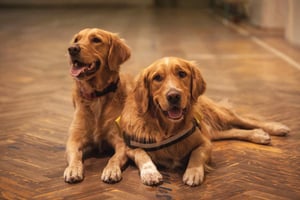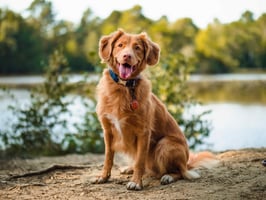Training your puppy to stop biting doesn't have to be a difficult process. With a few simple steps,...
How to Stop Your Dog From Eating His Poop
Is your dog eating his own poop? It's a common problem but it doesn't have to remain that way. Here are some helpful tips and strategies for stopping your dog from eating his own feces. Learn how to identify the cause of the problem and how to implement the most effective solutions to ensure that your pup stops this nasty behaviour.
What Causes Dogs to Eat Their Poop?
The scientific term for this behaviour is coprophagia. Common causes of coprophagia include dietary deficiencies, boredom, attention-seeking behaviour, digestive issues, and instinct. It is important to identify the cause of the problem before you can begin to take steps to stop it.
Preventative Measures
If your pup is eating his own poop, there are some preventative measures you can take to discourage the behaviour. Keeping your pup's environment clean and sanitary will help to prevent him from eating his own feces. Make sure to pick up your pup's droppings from the yard immediately and keep the space well-maintained.
You can also try feeding your pup a special diet that is high in protein and fiber. This will help to reduce the urge to eat his own poop. Additionally, providing your pup with plenty of exercise, toys, and mental stimulation can help to reduce the incidence of coprophagia.
Behavioural Training
If the preventative measures are not effective, you may need to resort to behavioural training. The first step is to teach your pup the "leave it" command. This will help him to understand that he should not eat anything that he finds in the yard or elsewhere. You can also use a leash to control your pup's behaviour and discourage him from eating his own poop.
You can also try using positive reinforcement to reward your pup when he refrains from eating his own feces. Praise him and give him treats when he does not eat his poop. This will help to reinforce the desired behaviour and encourage him to continue to resist the urge.
Medical Intervention
If behavioural training does not work, you may need to seek medical intervention. Your vet can recommend a medication to help reduce the urge to eat his own poop. Additionally, your vet may recommend certain supplements or probiotics to help with digestion.
Your vet can also help to identify any underlying medical issues that may be contributing to the problem. These issues can include digestive issues, hormonal imbalances, or nutritional deficiencies. Treating any underlying medical conditions can help to reduce the urge to eat his own poop.
Conclusion
Coprophagia is a common problem among dogs, but it can be prevented and treated. Identifying the cause of the problem is the first step in finding a solution. Implementing preventative measures, behavioural training, and medical intervention can help to reduce the incidence of coprophagia and ensure that your pup stops this nasty behaviour.



